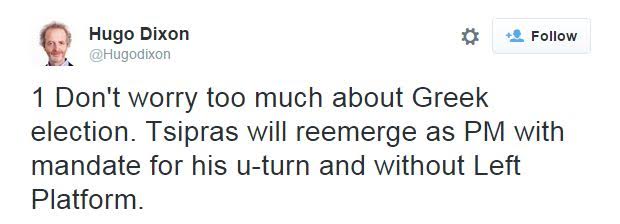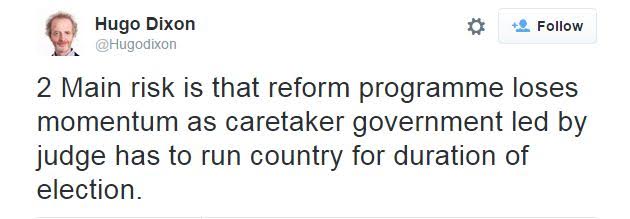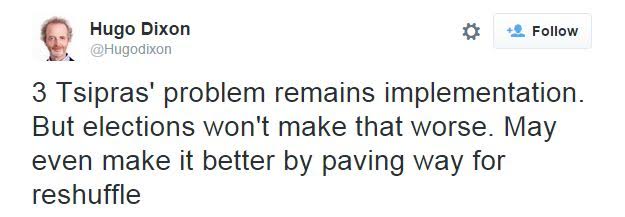International media reactions were quick after a decision by Greek PM Alexis Tsipras to call snap elections in Greece, given that a mini “insurrection” by more than a quarter of his MPs means he lost his Parliamentary majority.
The Guardian analyzed the situation as such: “If Tsipras has his way, he’ll be re-elected with a new mandate to implement the third bailout agreement. He’s sticking to his position that he did the best he could for Greece, despite failing to deliver his vow to end austerity.
The Greek PM also appears to be reinventing himself as a moderate. To do that, he must lose the leftist elements in his party, whose refusal to back the deal forced him to call snap elections.”
The WSJ wrote: “The 41-year-old premier hopes that new elections would allow him to win a stronger mandate to implement the bailout deal, backed by a new lineup of Syriza lawmakers that is more likely to support the government on key legislation.”
The Telegraph, meanwhile, speculated over the position of two top “dissidents” of SYRIZA, combative Parliament President Zoe Konstantopoulou and flamboyant former FinMin Yanis Varoufakis.
“The rumour mill is well under way, with talk suggesting that speaker of the Greek parliament Zoe Constantopoulou will join a breakaway Leftist faction. Ms Constantopoulou has been a constant thorn in the side of the PM, and is one of the most vocal critics of the new bail-out deal in the government.
However, former minister Yanis Varoufakis – who is not affiliated with the Left Platform – is likely to stick by his prime minister and current finance chief Euclid Tsakolotos.”
Finally, Reuters opined that “…but a snap election should allow Tsipras to capitalize on his popularity with Greek voters before the toughest parts of the program begin to bite, and may allow him to return to power in a stronger position without anti-bailout rebels in Syriza to slow him down.”
German media
In terms of major German-language media, Der Spiegel refers to a “government trying to solve its internal party problems with snap elections”.

Die Zeit referred to an extended period of “political uncertainty”,
Η Frankfurter Allgemeine Ζeitung writes: “Tsipras wants to resign; elections on Sept. 20”.
According to FAZ, “Tsipras wants to obviously solidify his power base, shortly after the ‘yes’ by lenders to the new support package”.

Sueddeutsche Seitung writes: “After the resignation of Tsipras, a caretaker government under Vasiliki Thanou, a chief justice, will become the first woman prime minister of the country.”
Finally, veteran “Greece-watching” correspondent Hugo Dixon tweeted the following:
Ask me anything
Explore related questions








